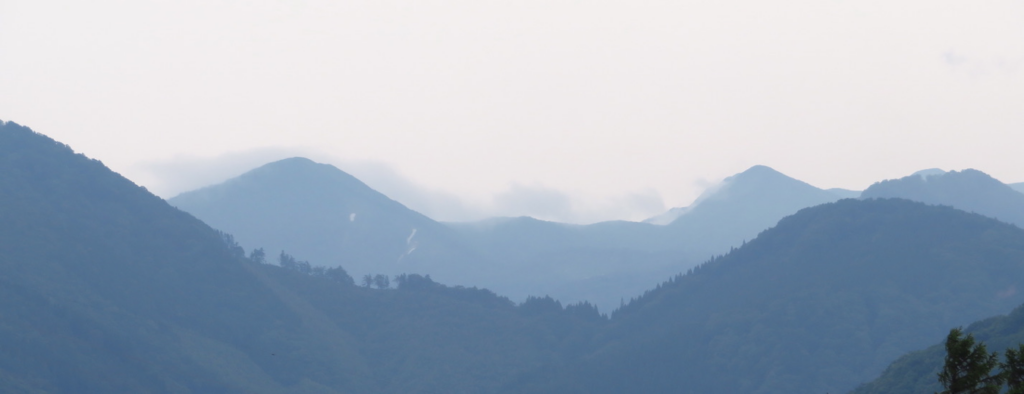The mountains
(Poet's title: Die Berge)
Set by Schubert:
D 634
[between 1820 and 1823]
Part of Schlegel: Abendröte (putative cycle)
Sieht uns der Blick gehoben,
So glaubt das Herz, die Schwere zu besiegen,
Zu den Himmlischen oben
Will es dringen und fliegen;
Der Mensch, empor geschwungen,
Glaubt schon, er sei durch die Wolken gedrungen.
Bald muss er staunend merken,
Wie ewig fest wir auf uns selbst begründet;
Dann strebt in sichern Werken
Sein ganzes Tun, verbündet,
Vom Grunde nie zu wanken,
Und baut wie Felsen den Bau der Gedanken.
Und dann in neuen Freuden
Sieht er die kühnen Klippen spottend hangen;
Vergessend aller Leiden,
Fühlt er einzig Verlangen,
An dem Abgrund zu scherzen,
Denn hoher Mut schwillt ihm in hohem Herzen.
Look at us with our eyes raised upwards –
That is when the heart believes that it can overcome gravity;
Up there into the heavenly realm
Is where it wants to burst through and fly.
The human being, raised aloft,
Already believes that he has penetrated through the clouds.
Soon he has to realise with astonishment
How firmly grounded we are for ever on ourselves.
Then he strives with secure work,
Everything he does being connected,
He strives never to move away from the foundations
And like cliffs he constructs the building of thoughts.
And then with renewed joys
He sees the bold rocks hanging there mockingly;
Forgetting all suffering
He feels a single craving –
To play about on the cliff edge,
Since lofty courage swells up in his lofty heart.
All translations into English that appear on this website, unless otherwise stated, are by Malcolm Wren. You are free to use them on condition that you acknowledge Malcolm Wren as the translator and schubertsong.uk as the source. Unless otherwise stated, the comments and essays that appear after the texts and translations are by Malcolm Wren and are © Copyright.
☙
Themes and images in this text:
Abysses, clefts and crevasses Buildings and architecture Clouds Courage Flying, soaring and gliding Gazes, glimpses and glances Hearts Heaven, the sky High, low and deep Joy Longing and yearning Mountains and cliffs
Human beings have looked at mountains and derived various messages from them over the centuries. For many, they represent a barrier, an instruction to remain within certain limits and avoid interaction with people on the other side of the range. In many religious traditions mountains have symbolised fixed, unchanging certainties in contrast to the transcience of human life and our petty concerns, or their height has been taken as a reminder of the difference between a world of perfection ‘up there’ and the corrupt and degraded world ‘down here’. In scientific geology mountains tell us about change rather than stability: they are the products of tectonic movements and violent uplift, but they are also subject to erosion and decay.
What Schlegel hears from the mountains in Abendröte is a moral lesson about risk and false confidence. When we are young, we are inclined to respond recklessly to the call of the mountains. It is all too easy to allow the thrill of exaltation to deceive us into thinking that we are no longer subject to the law of gravity. Friedrich Schlegel was of a generation (those who came to maturity in Western Europe in the 1790’s) that was particularly susceptible to this delusion. When it became apparent that the overthrow of the ancien régime might not lead directly to a world free of oppression and superstition, he and many of his peers began to re-assess their attitudes. This is the theme of the second stanza of ‘Die Berge’. We need to learn to build our ideas and ideologies on solid foundations, grounding our theories and actions on a realistic analysis of who we are. The mountains show us what mighty constructions CAN be built if we pay due attention to the basics.
Climbing the heights in this way allows us to be freer to take risks. We now long to dangle on the precipice but without the recklessness which would have imperilled us in our youth. Ultimately, the mountains speak to us about (and should elicit) human courage.

☙
Original Spelling Die Berge. Sieht uns der Blick gehoben, So glaubt das Herz die Schwere zu besiegen; Zu den Himmlischen oben Will es dringen und fliegen. Der Mensch, empor geschwungen, Glaubt schon, er sey durch die Wolken gedrungen. Bald muß er staunend merken, Wie ewig fest wir auf uns selbst begründet. Dann strebt in sichern Werken Sein ganzes Thun, verbündet, Vom Grunde nie zu wanken, Und baut wie Felsen den Bau der Gedanken. Und dann in neuen Freuden Sieht er die kühnen Klippen spottend hangen; Vergessend aller Leiden, Fühlt er einzig Verlangen, An dem Abgrund zu scherzen, Denn hoher Muth schwillt ihm in hohem Herzen.
Confirmed by Peter Rastl with Schubert’s source, Fridrich Schlegel’s Gedichte. Erster Theil. Neueste Auflage. Wien 1816. Bey B. Ph. Bauer. pages 17-18; with Musen-Almanach für das Jahr 1802. Herausgegeben von A. W. Schlegel und L. Tieck. Tübingen, in der Cotta’schen Buchhandlung, 1802, page 134; and with Friedrich Schlegel’s sämmtliche Werke. Erster Band. Gedichte. Berlin, bei Julius Eduard Hitzig, 1809, page 13.
To see an early edition of the text, go to page 17 [25 von 190] here: http://digital.onb.ac.at/OnbViewer/viewer.faces?doc=ABO_%2BZ20491940X


